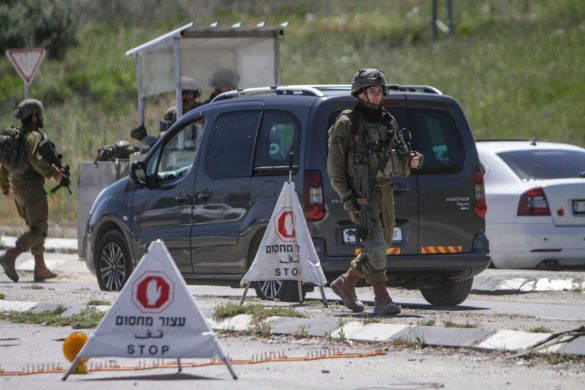Terrorangrebene og de direkte kampe mellem militæret og forskellige væbnede grupper tager til i Irak. Det får flere analytikere til spørge om landet er på vej ind i en ny borgerkrig. Analyse fra nyhedsbureauet IRIN.
DUBAI, 28 April 2014 (IRIN): As Iraq prepares to hold its first election since the withdrawal of US troops in late 2011, the country is struggling to contain increasing sectarian violence which some fear could push it back down the road towards civil war.
Suicide bombers and gunmen have been targeting party rallies, government buildings, polling stations, religious sites and universities, as well as indiscriminately striking at markets, restaurants and residential areas.
In the western province of Anbar, government forces are shelling the cities of Fallujah and Ramadi in a bid to counter what they say is an Islamist insurgency.
This has triggered the displacement of nearly 440,000 people within four months.
The result is sparking a humanitarian crisis to which under-funded agencies are struggling to respond due to lack of funding and a worsening security situation.
According to Iraq Body Count, a UK-based independent tracking database, 863 people were killed between 1 and 26 April, while the overall death toll since the beginning of the year is rapidly approaching 4,000.
Although the current death rate is still well short of the 2,000-a-month seen at the height of the al-Qaeda insurgency in 2006, it is the highest it has been for six years – fuelling fears that the violence will only increase after the 30 April elections as the various political blocs vie for influence and power.
A number of respected commentators, including David Ignatius, an associate editor and columnist for the Washington Post, and veteran British foreign correspondent Patrick Cockburn are now starting to ask if the country is heading back to civil war.
“While in pure numbers terms, we aren’t back in 2006,” Erin Evers, Iraq researcher for Human Rights Watch (HRW), told IRIN, “in terms of the rhetoric that’s being used and the resurgence of Shia militias fighting alongside the government, then yes, we are definitely going back to 2006 in terms of things being more and more sectarian-dominated.”
Getting worse before it gets better
Daniel Serwer, a former US diplomat and senior research professor of conflict management at the Johns Hopkins School of Advanced International Studies, agreed that the death rate was nowhere near as bad as 2006.
But he warned: “Things can get much worse from where we are, and more than likely they will, though I still think this election represents an opportunity to change the approach to governance and make a more effective government.”
However, the elections also present a serious risk of escalation of tensions.
“Politically, all sides are staking out increasingly extreme positions… It’s hard to see how the elections, however the results come through, can detoxify this atmosphere,” Stephen Wicken, an independent Washington-based Iraq analyst, told IRIN.
“I don’t think civil war is looming, but I do think the risks are higher than at any point in recent years. Short term, it may get worse before it gets better,” he said, though he noted “Iraq has an incredible capacity to bend without breaking”.
Taking those last thoughts several steps further, Yasseen Abbas, president of the Iraqi Red Crescent, one of the few aid agencies that has been able to deliver aid inside troubled Anbar Province, told IRIN in March that civil war was not a possibility.
“Iraqi people suffered a lot during 2006 and 2007 and it will take a lot for them to go back there. They will never accept a situation like that again, everybody wants to live and for their children to have better lives.”
Wicken did, however, raise concerns about the rising profile of Iranian-backed Shia militia group Asa’ib Ahl al-Haq (AAH), or League of the Righteous, which is now active in Syria fighting on the side of President Bashar al-Assad.
AAH’s political bloc, Sadiqun, is informally allied to Iraq’s Shia Prime Minister Nouri al-Maliki’s political coalition.
“Asa’ib Ahl al-Haq are bigger and bolder than at any point since Coalition troops withdrew,” he explained, adding:
“For the moment I would say that they’re occupied primarily with Syria… but if the fighting in Syria should reach a real stalemate, or if something should happen in Iraq to draw their focus, Iraq could be on course for civil war.”
Warning bells
Læs resten af artiklen på IRIN News.















